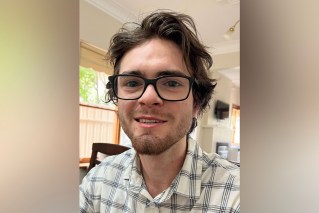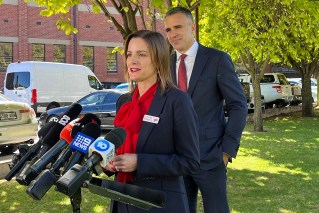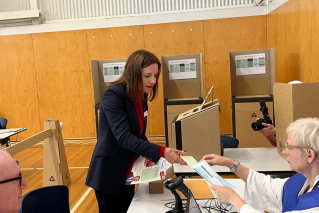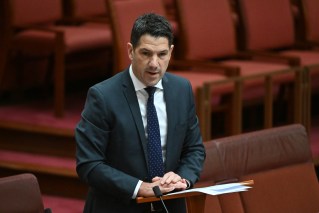Learner drink driver had stitched chainsaw wound

Shutterstock
A learner driver who stitched his own chainsaw wound before attempting to drink drive to hospital has lost an appeal to have the matter considered “trifling” by the Supreme Court.
Timothy Withrow, who sustained the wound at this Port Willunga home south of Adelaide in February 2014, used a sewing needle and fishing line to stitch himself up for fear the cut could become infected.
He had earlier phoned the Noarlunga Hospital and Flinders Medical Centre, only to be told they were extremely busy and would be unable to treat his gaping wound for more than 10 hours.
• Maribyrnong River human remains identified
• More victims of berry virus
• Bali Nine: transfer to execution island postponed
Mr Withrow told the court he used gin to wash the wound because he did not have any antiseptic in his house.
He also drank the gin to relieve his pain.
But once he had closed the wound, he decided he still needed medical attention and, because he could not contact his wife, chose to drive himself to hospital.
Police pulled Mr Withrow over after he failed to stop at a stop sign on Main South Road.
His blood alcohol reading was 0.175, more than three times the legal limit, and he was issued with an immediate licence disqualification.
He was charged with several driving offences, including drink driving, failing to stop, and breaching the terms of his learner’s permit.
Mr Withrow pleaded guilty in the Magistrates Court, but sought to have the matter dealt with as trifling.
He argued the failing to stop offence was trivial in itself because he was travelling at approximately five kilometres per hour.
Under SA legislation, if a traffic offence is considered trifling, either no demerit points or a reduced number of demerit points may be awarded, or the penalties imposed may be less than the stated minimum.
The magistrate ruled against Mr Withrow, saying he should have used a taxi or asked neighbours for a ride to hospital if he could not afford an ambulance.
Before the man could be sentenced, however, he launched an appeal to the Supreme Court to overturn the magistrate’s decision and classify the offending as trifling.
Supreme Court judge denies appeal
However, Justice Kevin Nicholson of the Supreme Court also ruled against Mr Withrow.
“I agree with the magistrate that the situation the appellant found himself in was not sufficiently serious as to justify his actions on the basis of a pressing humanitarian purpose or other necessitous circumstance,” he said.
“There were other options available, such as calling an ambulance or a taxi or approaching a workman or a neighbour. None of these were explored before the appellant decided to drive himself.
“Furthermore, the appellant’s very high blood alcohol content, combined with the fact that his journey, had it been completed, would have required him to traverse the main arterial road of Main South Road on a Friday afternoon, meant that he posed a clear danger not only to himself but to other road users.”
He noted that Mr Withrow told him that he was an experienced driver who had held a full licence in California for 10 years, and that his driving did not create a risk to the public.
But the judge declined to make the requested order.
“Only in rare and exceptional circumstances will a finding of trifling with respect to offending of this nature be made,” Justice Nicolson said.
The matter has been remitted to the Magistrates Court for sentencing.
– ABC








